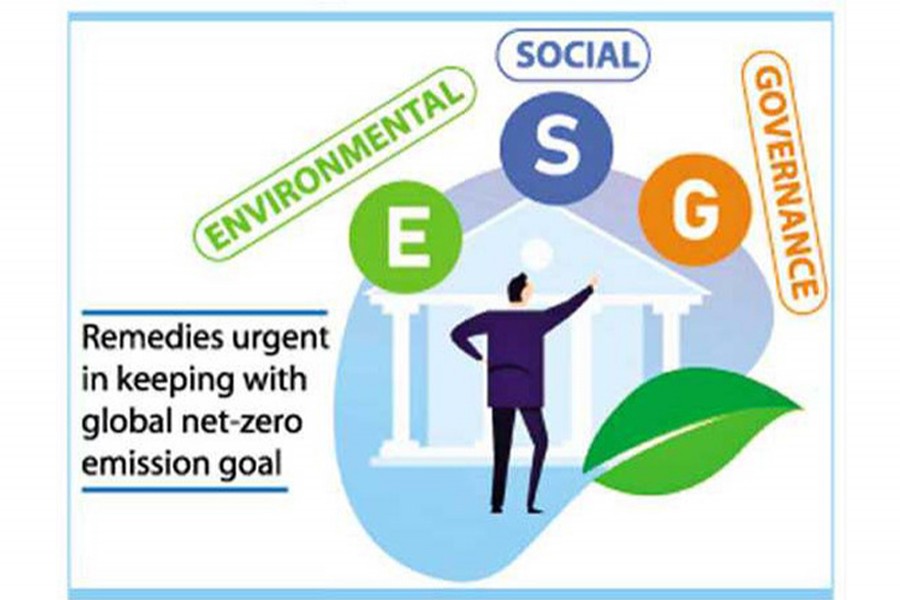Environmental, social and governance (ESG) practices in Bangladesh's corporate regime remained much poor as the authorities concerned have yet to prepare rules to promote it for a sound run of firms, experts say.
ESG is an evaluation of a firm's collective conscientiousness for social and environmental factors. It is typically a score that is compiled from data collected surrounding specific metrics related to intangible assets within the enterprise.
It is taking on an even greater significance in the light of recent events, especially the covid-19 pandemic that upended normal life and business.
Even, neighbouring India's securities regulator -sebi--- has prepared such rules which are now very much in conformity with the goal of net-zero emission status meant for the planet.
MetLife, British American Tobacco Bangladesh, mobile-phone operators and such few MNCs have such investments in the country. MetLife Foundation disbursed US$ 350,000 in Bangladesh in 2020 and 2021 to a local NGO, Sajida Foundation.
When contacted, BSEC spokesperson Rezaul Karim said that they encourage such practices for green bonds. Companies have the responsibility and resources to accomplish positive climate action, building a more sustainable and resilient future.
"We do it by applying 2cc of the securities ordinance of 1969," he says.
The social element of the ESG is moving to the forefront, while the green-bond market will continue to grow as climate change remains on top of mind, he noted.
He says the primary regulators may take initiative on the matter of compliance.
Mr. Karim noted that there is no organisation to score on such technical matters.
"Suppose, we want to measure environmental cost of oil-exploring company in the sea--do we have such organisations?"
In line with global trends, the BSEC official says, there is need for intensive regulatory and supervisory approaches for the ESG-rating providers.
ESG-rating providers usually aim to measure either the exposure of a company to ESG risks, or the assessment of a firm on its ESG profile.
At the COP26, owners and managers pledged US$130 trillion to align their portfolios with the goal of net-zero emissions.
In the meantime, local credit-rating agencies told the FE that they have preparations to take the challenges related to the ESG support to the corporate organisations.
"We are now exploring the methodologies on how to score the other ESG-service providers," says Prof Muzaffor Ahmed, president at the country's one of the oldest rating agencies, CRISL.
They have yet to get any directive from the regulators --- BSEC and the central bank of Bangladesh.
Muhammed Asadullah, managing director at Alpha Credit Rating Limited, said that if the licensing authorities instruct them, they would comply with it.
The ESG investment has increased globally in the aftermath of the COVID-19 crisis as investors are increasingly considering ESG factors in an attempt to plug the gaps created by the pandemic.
In fact, the first three months of 2020 saw $45.6 billion flow into these funds globally. Some 8 $30.7 trillion currently sits in sustainable investment funds worldwide, and it is predicted this could rise to around $50 trillion in the next two decades.


